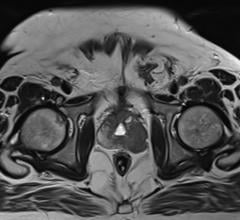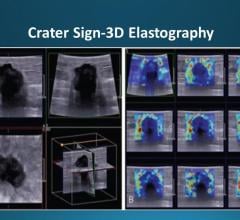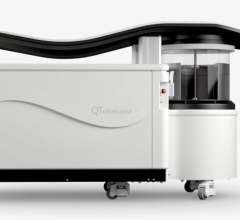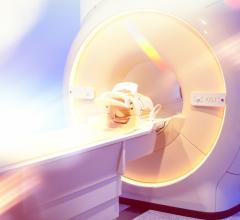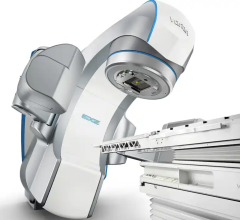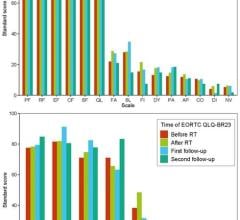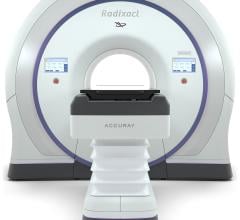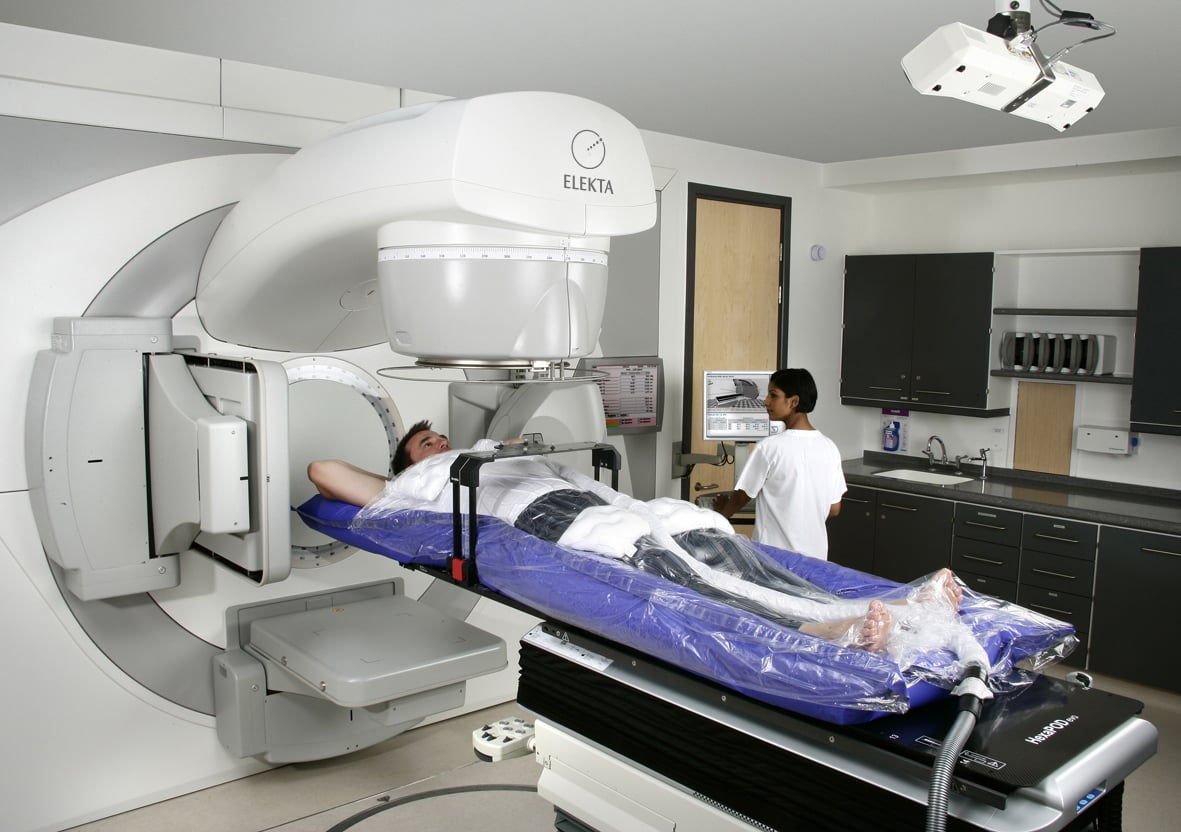
July 31, 2014 — Radiation therapy may offer a promising new noninvasive alternative treatment for the millions of Americans whose high blood pressure doesn’t respond to medication, suggests preliminary research presented at the 56th annual meeting of the American Association of Physicists in Medicine (AAPM) in Austin, Texas.
Nearly 78 million Americans have high blood pressure, or hypertension, putting them at risk for heart disease, heart failure, stroke and kidney disease. In more than a quarter of people receiving treatment, standard therapy (lifestyle changes and medication) doesn’t help. Radiation therapy may provide a solution for people with this treatment-resistant form of hypertension.
A second study presented at the meeting suggested magnetic resonance imaging (MRI)-guided radiation therapy also may be an alternative treatment for atrial fibrillation (AF), a common arrhythmia that affects more than 2.5 million Americans, significantly impairs the quality of life, increases the risk of stroke five-fold and doubles the risk of death.
Radiation Therapy for Hypertension
Blood pressure is controlled by a combination of nerve signals and hormonal interactions between the brain, heart, blood vessels and kidneys. Radiation therapy can be used to disrupt the signals in the nerves that are wrapped around the renal arteries to the kidney. While researchers are exploring alternative methods to treat resistant hypertension, most are not effective.
“We have the tools to focus radiation so precisely, we can target the nerves responsible while sparing the nearby healthy structures such as the spine and kidneys,” said Peter G. Maxim, Ph.D., lead author of the study and assistant professor in the department of radiation oncology at Stanford University School of Medicine & Cancer Institute. “It’s noninvasive and could be done in a single treatment.”
In the study, six hypertensive pigs were treated with 40 Gy of radiation in a single treatment to the nerves surrounding the arteries leading to the kidneys. All animals survived to the follow-up point with no adverse events. Pathologic examination revealed moderate damage to the nerves and minimal damage to nearby critical organs, highlighting the targeting accuracy and precision of radiation delivery to the intended target. The blood pressure continued to drop in the three-month follow-up period after treatment by about 30 percent on average, which is beneficial, but not enough to bring it to normal. Researchers did not track the blood pressure beyond three months, but plan a future study with two-year follow-up to determine the dynamic changes in blood pressure. In the current study, researchers radiated the entire renal artery, and future research will consider how much radiation should be used and precisely what areas should be irradiated.
“This is a very promising method that’s worth exploring in detail — our study shows there is something to it,” said Maxim. “It could be beneficial for millions of patients.”
MRI Guidance of Radiation Therapy for Atrial Fibrillation
In another study, researchers tested a special cardiac MRI on four patients, demonstrating it is possible to image the beating heart accurately enough to guide radiation therapy to treat AF arrhythmias. Previous research conducted by the German members of the team found that targeted cardiac radiation therapy can isolate the source of the arrhythmia. The challenge is to image a beating heart accurately to ensure the radiation therapy reaches the target without damaging the heart or surrounding tissues.
“The ideal treatment would be noninvasive, but the challenge is you can’t see the heart from the outside,” said Paul Keall, Ph.D., lead author of the study and a professor of medicine at the University of Sydney, Australia. “Our approach combines MRI and radiation therapy to see the beating heart and treat the AF. The treatment uses the exquisite targeting accuracy of modern image-guided radiation therapy [IGRT] to hit the AF and avoid critical structures near the heart, such as the esophagus, blood vessels and the spinal cord.”
The researchers are working to further develop the cardiac MRI and test it in patients. AF can be treated with medication or other therapies such as ablation. Ablation to isolate the electrical signal is a common treatment, but is invasive, requiring insertion of a wire into the vein and feeding it to the heart. If studies are successful, MRI-guided radiation therapy could offer a noninvasive alternative to AF patients.
For more information: www.aapm.org


 March 28, 2024
March 28, 2024 
